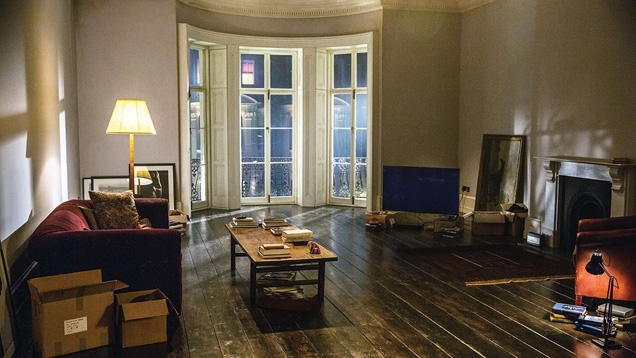Minimalism
2016-04-12
My flavor of minimalism is quite lenient, and not related to the formal philosophical one. It's a combination of my organizational, financial, and artistic habits. Minimalism is also a counter-movement against consumerism. Like all movements there are extremes; I don't go near the extremes.
Minimalism makes the most sense in terms of material purchases. It means that I try to limit the quantity of my possessions, among other criteria. Having less stuff feels cleaner and more organized. I'm less tied down to one place. People express themselves through their purchases.
"Our things define us. What we buy, what we use, what we keep and throw away, what we waste, and what we save: the stuff that surrounds us and flows through our lives is a key indicator of the kinds of lives we're living. To be an affluent twenty-first-century person is to float on a sea of material objects - each with its own history and future. They may be hidden from our eyes, but in practical global terms, those histories and futures tend to be the most important aspects of the stuff we own." - Alex Steffen
Americans are used to treating our stuff as disposable. Possessions go in and out of style, usefulness, and our attention. In reality, as Alex wrote, things have lives outside of our time owning them. A shirt could be made from cotton from India and dyes from China, woven in Thailand, shipped across the Pacific, making its way by truck to a store in the U.S. where it's bought, used, and thrown out to rot in a landfill. I'm not shunning the process, it is just an example of our global economy. It is easy for wealthy Westerners like myself to take for granted a $20 possession. Practically everything I interact with was made by somebody sweating to earn a living buying things that somebody else sweated to make ad infinitum. This process is a good thing! It is why the population of earth is productive. It is how we all get food, water, shelter, and keep ourselves sane. Minimalism argues that buying less stuff can make us happier and healthier. It is a lifestyle that opposes instant gratification and hoarding.
Here is my recipe to curve my consumer desires to satisfy that gratification itch. I think about what I buy. Here's a few things I think about before I shop. The goal of these rules is to make sure that purchases make your life better, and to minimize purchasing regret and guilt.
- Buy things you need. Toothbrush, underwear, and a sandwich are good choices.
- Buy things that last. "They don't make them like they used to." Oh, they do, but not at the price of the stuff that will fall apart in a month. It is better to buy one well built thing than two crappy things.
- Wait two months. Do you still want that thing or was it a fad? It will probably be more affordable then anyways. Are you actually going to use it when you buy it?
- Time is Money, so spend your money where you spend your time. This is why people buy silk sheets and $800 office chairs.
- One man's trash is another man's treasure. Resell and buy used especially if it is a durable thing. Reduce, Reuse, Recycle.
- Buy experiences not things. Make room in your budget for a once-in-a-lifetime trip with your friends to New Zealand. Experiences and adventure are worth much more than possessions.
I have to mention that these rules are really only a set of guidelines. They are utopian ideals, and I often break them. Especially when it comes to food. Good ~~healthy~~ food with the people in my life is my Achilles heel.
It is actually possible to have a lot of stuff with my flavor of minimalism. If your life work requires a diverse set of tools or materials, you might have a lot of stuff, while really using it all. Craftsman may have a kitted out workshop. It is more about having what you use than having little of the things you need. Having the things that you use and need doesn't violate minimalism.
Minimalism doesn't claim to be less expensive than consumerism as a goal. It is possible to spend a lot on the things that you use. But for most cases, buying less quantity and higher quality translates to at least some savings. Minimalism is definitely organizationally cheap though. Having less stuff means keeping possessions organized is more simple.
There are some caveats though. Minimalism is not for everybody. People like to buy stuff, I agree, it's fun. Some people might feel empty without so much stuff. I've been told that "[my] room feels empty," and "it feels unlived in."
Hand in hand with minimalism is the idea of finding beauty in everyday objects. I plan on elaborating on this idea in a separate piece.
